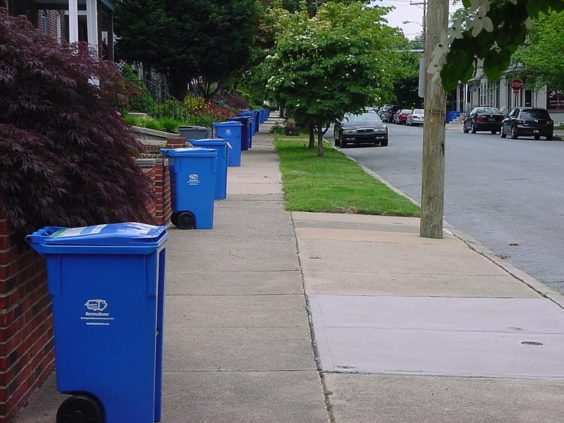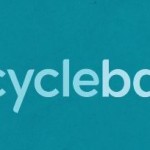
If you’ve been couponing for a while, there’s a good chance you’ve checked out Recyclebank, where you earn points that can be redeemed for coupons. Anyone can sign up and earn points by participating in quizzes, learning environmental tips, taking surveys or pledging to take “green actions”. But the most points – and, sometimes, the best coupons – are available to residents of communities that have partnered with Recyclebank to offer recycling programs. Now, though, some of those communities are crying foul, over a change in the program that could reduce your point totals, cut back on the coupons you can receive – and give them to your lazy neighbors instead.
In communities served by Recyclebank, each recycling container is fitting with a radio-frequency identification chip, to identify its owner. As originally envisioned, each container would be weighed, and you’d earn points based on how much you recycled that week. The more you recycle, the more points and coupons you get.
But in some areas, Recyclebank began implementing a “community based rewards program” instead. Under that system, an entire community’s recycled material is weighed, the sum is divided by the number of participating residents, and each resident gets an equal share of points. So if you diligently fill up your recycling bin each week, you get the same amount of points – and coupons – as someone who, say, tosses a single newspaper into their bin.
Now, Recyclebank has decided to implement the community based system nationwide. And some avid recyclers aren’t happy about it.
“That may not be too palatable to some citizens who recycle everything possible, as opposed to somebody who recycles aluminum cans and milk containers,” Alcoa, Tennessee City Manager Mark Johnson told Maryville’s Daily Times. So, effective tomorrow, Alcoa is ending its relationship with Recyclebank. “We’re not the first,” a city spokesperson told the newspaper. “There are a lot of cities that are dropping Recyclebank.”
Indeed there are. As reported here last year, many communities that signed up for the program with high hopes, have had second thoughts (read: “Turn Your Trash Into Coupons (But Some Say, No Thanks)”). It turns out those coupons and recycle bins aren’t free. Communities that contract with Recyclebank have to pay for the privilege of rewarding residents for recycling. And of course, if your community is paying for it, that means you’re paying for it.
In Alcoa, residents paid an average of $3 a month for Recyclebank to serve their community. Only after recycling, saving up hundreds of points, redeeming them for coupons and then using them, could residents hope to make that money back each month. One resident of Palm Bay, Florida last year questioned why he had to pay “to be incentivized to recycle when it’s something I do quite well?” Instead of recycling to earn points to earn coupons, Palm Bay’s mayor said “you could go to Coupons.com and do just as good,” for free.
To be fair, Recyclebank continues to sign up new participants, and boasts that it is partnered with more than 300 communities across the country. But the switch to the community-based rewards system was the last straw for some communities. The change has prompted some of Alcoa’s neighbors, including Knoxville and Oak Ridge, to drop Recyclebank as well. “Even before this change, our participation rates were low,” Knoxville Public Service Director David Brace said in a news release. “We expect this change would reduce that participation even further.” Knoxville says doing away with Recyclebank will save the city $90,000 a year.
What will Knoxville do with that extra money? It plans to use the savings to buy more rollout recycling containers for more than 2,000 homes that have been on a waiting list. So, in the end, more people will be able to recycle without Recyclebank, than they could with it. And if that means not getting coupons for their Kashi anymore, that’s a price many residents are willing to pay.
Image source: Recyclebank










